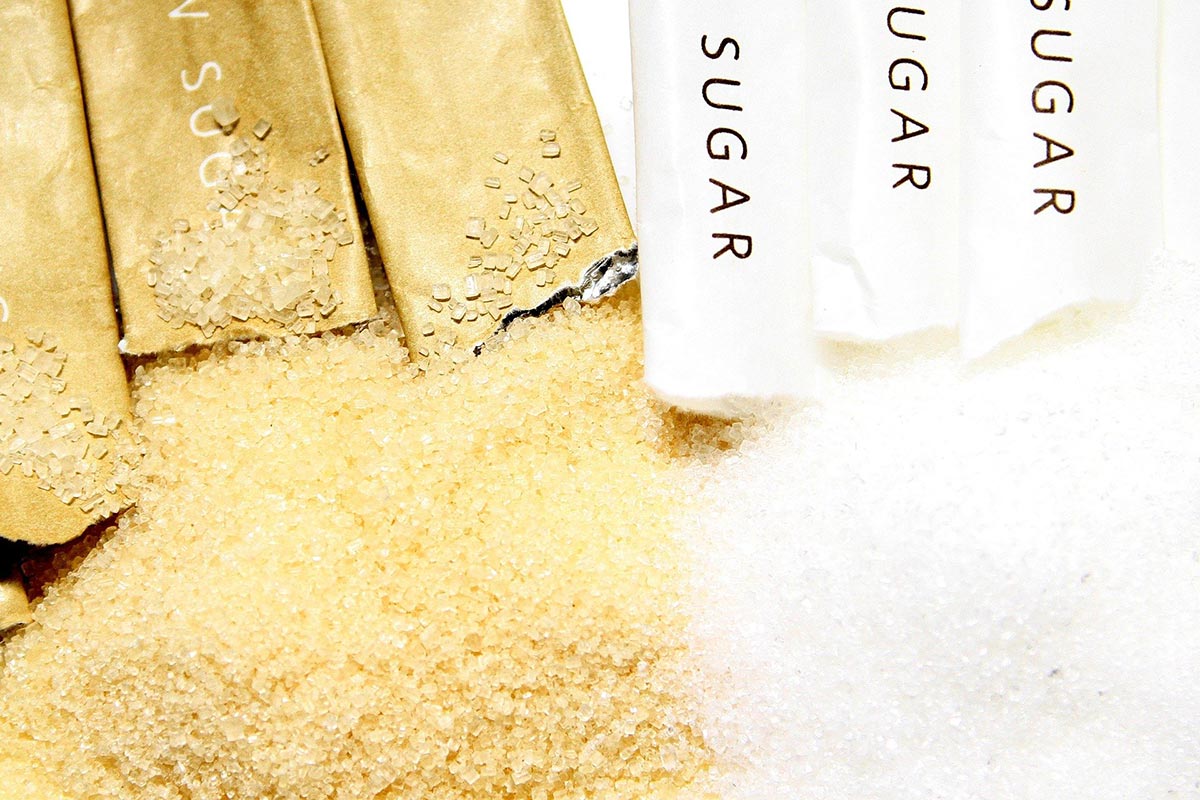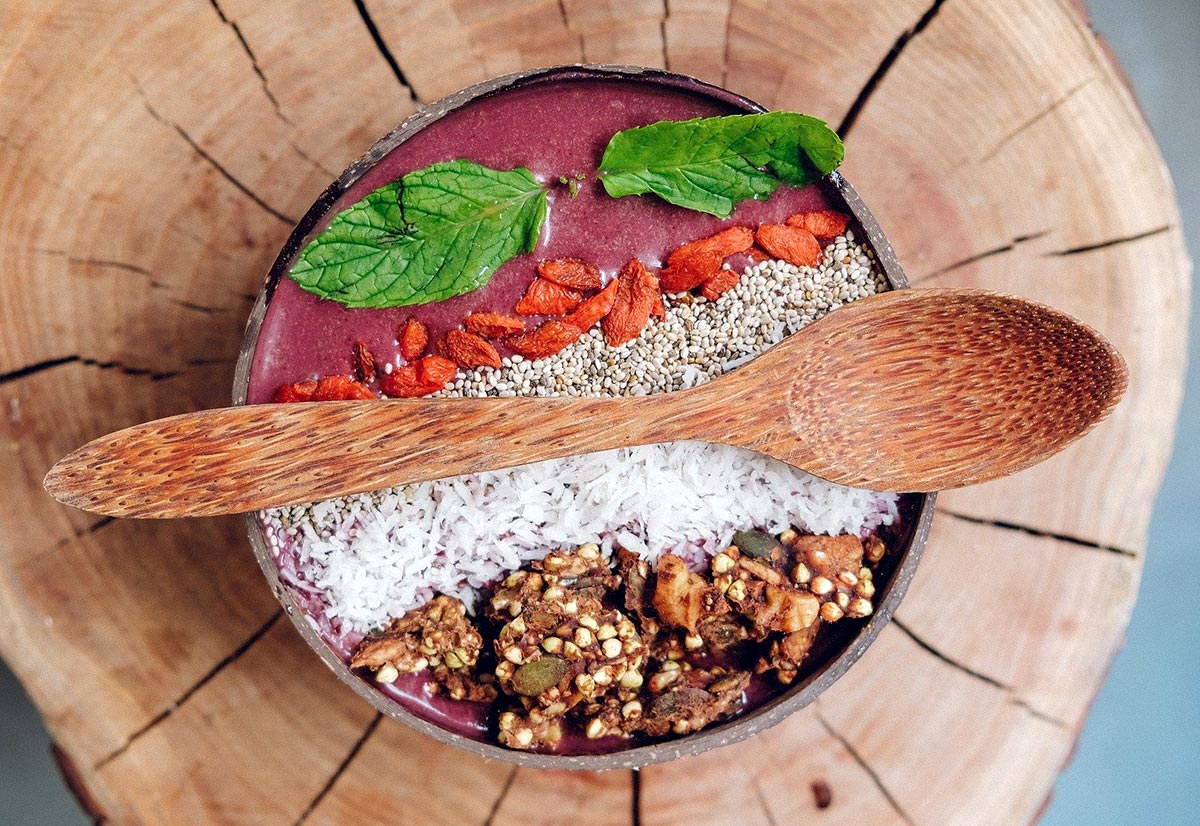If you're currently on a fat loss diet plan or simply watching your health and nutrition, aiming to cut sugar out of your plan as best as possible, it's helpful to know your options. Not all sweeteners are created equally, so by weighing the pros and cons of each one, you can decide for yourself which ones you feel safe putting into your body. Let's take a closer peek into the more common options out there to give you some information to base your decision on.
Agave
Agave is the first sweetener to consider and is very much along the same lines as honey as far as nutritional value and benefits go. This sweetener is sweeter than sugar and is natural, just like honey and maple syrup are. Since it isn't as refined, it's not as potentially damaging to the body as some chemical-like sweeteners are; however, keep in mind it does contain calories and will increase blood sugar. For this reason, overconsumption could set you up for diabetes, high body weight, and further diseases associated with excess body fat. That said, agave does contain more fructose than sugar, meaning it won't spike blood sugar to the same degree.
Honey
Honey is another natural sweetener and, like sugar, will contain about 15 calories per tablespoon. Honey has a larger fructose content, just like agave, so will do a better job at keeping blood sugar levels in check. That said, it can lead to fat gain slightly easier as there isn't much storage space in the body for fructose before it converts to body fat. Interestingly, honey is rich in antioxidants, especially polyphenols, which may help reduce chronic inflammation, potentially lowering the risk of conditions like type 2 diabetes and heart disease. It can also improve heart health by reducing cholesterol and triglycerides, enhance athletic performance and immune function, and promote good gut health by fostering beneficial bacteria.
Real Sugar
Real sugar is the natural sweetener you can use since it's not processed and made in nature. That said, it increases blood sugar levels rapidly as it is all glucose, produces an insulin spike, and can lead to diabetes when consumed in large quantities on an ongoing basis. Furthermore, it's high in calories at 16 per teaspoon, so may make weight control difficult. That said, it is a natural sweetener, so for those who view artificial sweeteners as chemicals, it's the likely choice.
Truvia
Truvia is a non-calorie sweetener that's made from Rebiana, which is an extract from the stevia leaf. For this reason, it's also viewed as a more natural sweetener and has generally been deemed safe to use; however, keep in mind, as it is a newer product on the market, there aren't a lot of long-term studies done on it to back up these safety claims. It does appear to be good for keeping blood sugar levels stable, so ideal for use in diabetes, and doesn't appear to show any harm in animal studies to reproductive function.
Molasses
If you're not looking for calorie-free, molasses can be a great choice. It's actually rich in nutrients containing manganese, copper, calcium, and iron, so may boost health standing when used in moderation. That said, it does spike insulin just as sugar does and contains just as many calories, so be aware of the body weight repercussions of this sweetener.
Stevia
Stevia is one of the more popular zero-calorie sweeteners that people will turn to as it's one of the only ones that is considered to be natural since it comes from the Stevia plant. Interestingly, this sweetener may actually help to lower blood pressure and blood sugar levels, so may actually prove to benefit your health compared to other sweeteners which may only harm your health over the long term. You can safely use this sweetener in baking as well, and it tends to be much sweeter in terms of total volume used than real sugar. The drawback is that it's not FDA regulated, so you're using it at your own risk.
Splenda
Splenda has been approved by the FDA and is 600 times sweeter than regular table sugar. That said, it isn't completely calorie-free as the ingredients added to bulk up this sweetener contribute 12 calories per tablespoon. Keep this in mind while using it. It's also safe to use in baking but can produce an artificial taste that some people pick up on. This sweetener does contain chlorine, however, which upon high consumption, may get dangerous. Some side effects reported include bloating, gas, diarrhea, skin rash, anxiety, depression, and itchy eyes.
Aspartame
Aspartame is one of the most studied artificial sweeteners and has been deemed safe for human consumption by over 100 regulatory agencies, including the U.S. Food and Drug Administration (FDA) and the European Food Safety Authority (EFSA). However, in July 2023, the International Agency for Research on Cancer (IARC) classified aspartame as "possibly carcinogenic to humans" based on limited evidence. Despite this, the Joint FAO/WHO Expert Committee on Food Additives (JECFA) reaffirmed the acceptable daily intake level of 40 mg per kg of body weight per day, indicating that moderate consumption is still considered safe.
Erythritol
Erythritol is a sugar alcohol used as a low-calorie sweetener. While it doesn't raise blood sugar levels and is generally considered safe, a 2023 study suggested a potential link between high blood levels of erythritol and an increased risk of heart attack and stroke. The study indicated that erythritol might enhance blood clotting, highlighting the need for further research into its long-term cardiovascular health effects.
Sucralose
Sucralose, commonly known by the brand name Splenda, is a zero-calorie artificial sweetener that is about 600 times sweeter than sugar. It is widely used in various food products and beverages. While sucralose is generally considered safe, some studies have raised concerns about its potential health effects. For instance, research has suggested that sucralose may alter glucose and insulin levels, potentially affecting blood sugar control. Additionally, there is evidence that sucralose may have adverse effects on gut health by disrupting the balance of beneficial bacteria in the intestines. It's important to note that the research on sucralose's health effects is ongoing, and more studies are needed to fully understand its impact on human health. As with any sweetener, it's advisable to consume sucralose in moderation and be mindful of its presence in processed foods and beverages. Monk fruit extract, also known as luo han guo, is a natural sweetener derived from the monk fruit.













